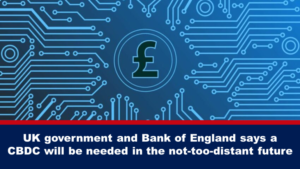This column appeared in De Andere Krant (NL) of October 28
(borrowed from Pieter Stuurman through Rick Kuitems)
Imagine: you place your bicycle in a bike shed. Nice and safe. After some time you want to pick it up. But first the manager starts asking you all kinds of strange questions. Or if can you prove that the bicycle is really yours, and if so, how did you get the money to buy it? And where are you going with that bike? Please prove!
Logically you are outraged. After all, such interference in your private affairs is completely unacceptable. You think I’ll go to a competing bike shed. But when you get there, it turns out that you are also regarded as an unwanted customer there. In fact: at all parking garages in the city, and even the entire country.
Impertinent questions from the banks
Strange story, isn’t it? Yet it is something that is happening to more and more people.
Not with their bike, but with their money. Their own money that they deposited at their bank, because they believed it was safe there. But in more and more cases that appears to have been a costly mistake. Banks are increasingly asking a series of impertinent questions before you can access your money. Questions that are so nonsensical (and of no concern to the bank in question) that you have an understandable tendency not to answer them. But then you come home to a rude awakening. No satisfactory answer within 10 days? Then your account will be closed.
Whatabout going to another bank? Forget it! Regulations require banks to inform each other, so you no longer have anywhere to go. You are persona non grata everywhere. If you make a claim, responsibility will be delegated to the government. “We are obliged to carry out these checks.” If you then contact the government, they will say that banks are private companies and they have the right to refuse customers. So neither of them takes responsibility and you are left empty-handed. A perfect double punch of power display with you as the one without power in the middle. Aren’t there rules, such as duty of care, you say? Indeed, but just try to start a litigation without a bank account and thus without money.
Suddenly it becomes clear how dependent and vulnerable we have allowed ourselves to become. In the early 1970s, everyone wanted to have a bank account. What convenience! And so much safer too! Before, a bank account was something for the rich, but now everyone could enjoy its blessings. Your wages were neatly deposited into your account that you could open for free, without questions or conditions. Already then I was wondering where all that generosity suddenly came from and also whether those banks would remain so nice if everyone ultimately depended on them. And now we have the answer.
De-banking (removal by the bank)
De-banking is starting to take off. More and more organizations and private individuals are confronted with this and are removed by their bank. Proper argumentation is irrelevant. In many cases, customers are required to account for normal transactions from years ago. “If you just be so kind to prove what exactly happened then.”
In case of insufficient evidence according to the bank? Then they are considered ‘suspicious transactions’ and you will be cancelled. It is striking, though, that it usually affects people who have a vision that dffers from the prescribed reality, as propagated (and in this way also imposed) by the political regime and the collaborationist media, and in which banks apparently go along.
The bank as obedience police, which imposes punishments and acts as executioner. And the punishment is not small. You cannot live without a bank account. You cannot earn money because your wages cannot be deposited anywhere, and you cannot pay your rent or mortgage because that can only be done through a bank. Cash you say? Without an account, there will be no flaps coming out of the wall. De-banking is therefore a virtual death penalty. Distributed on the basis of arbitrary and opaque rules, and carried out by a non-judicial body. We have been declared, in medieval terms, outlaws.





